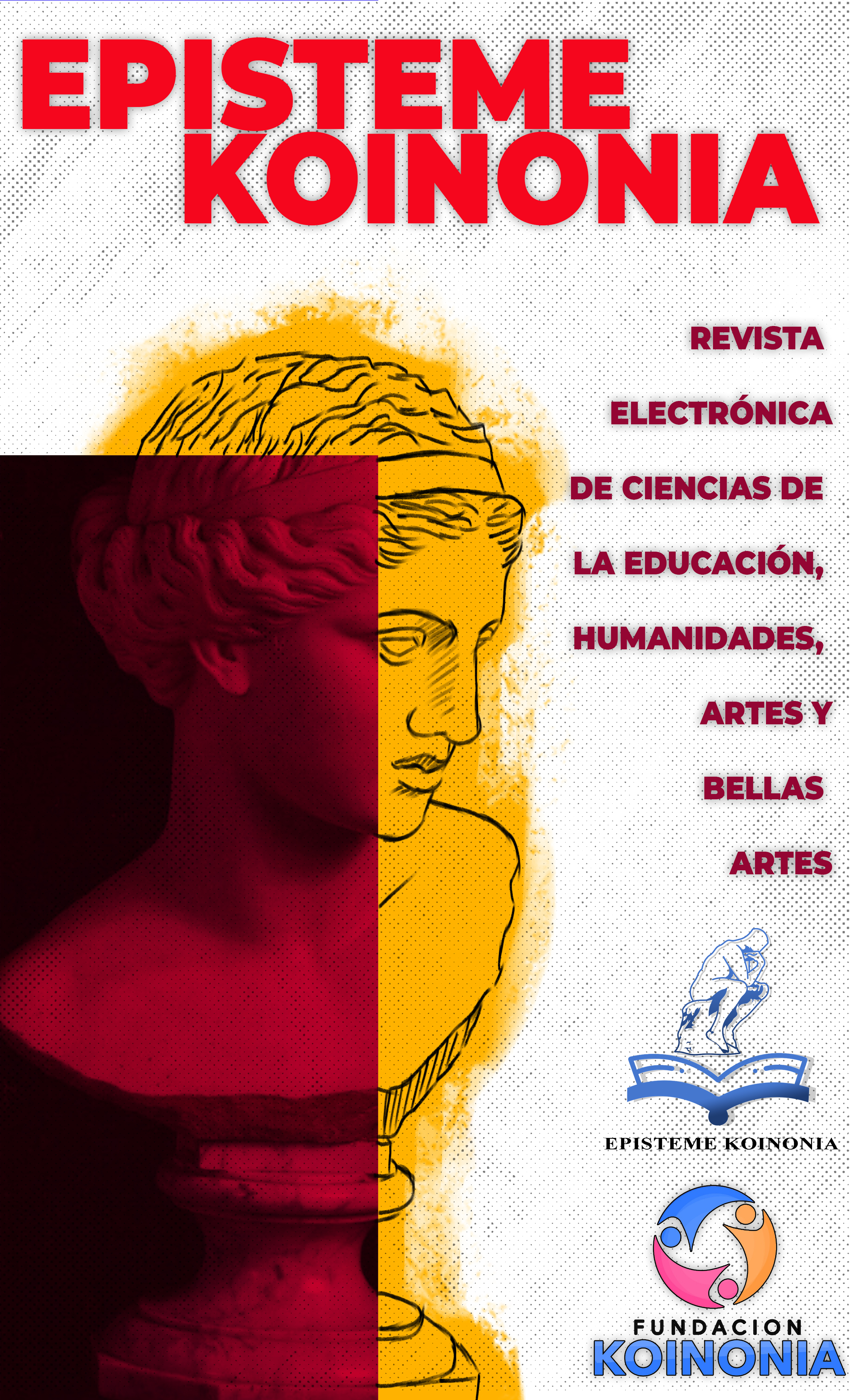Monitoring, support, and evaluation models for teachers to develop reading skills in elementary school.
DOI:
https://doi.org/10.35381/e.k.v8i16.4631Keywords:
Teacher monitoring, teacher accompaniment, teacher evaluation, continuing education model, reading in primary school, (UNESCO Thesaurus).Abstract
The study consisted in elaborating a model of monitoring, accompaniment, and teacher evaluation for the development of reading competence in primary school students of IE N° 81008, Municipal, in Trujillo. The research was purposive with a descriptive design, whose research methods were the analytical-synthetic and the modeling method. As a technique, a before - during - after reading, analysis - synthesis strategy, focus group, observation and test were used. The instruments, such as reading cards, focus group guide, observation guide, checklist and test, were applied to eighteen teachers and sixth grade A and B students. As a result, the model was presented, concluding that the teachers and students of the IE show deficiencies in reading, being this surmountable in the didactics with efficient monitoring, accompaniment, and evaluation
Downloads
References
Almanza, S., Ruiz, L., Romero, M. & López, U. (2023). Estrategias didácticas para el fortalecimiento de la comprensión lectora en estudiantes del grado cuarto, Sincelejo-Sucre. Revista Electrónica en Educación y Pedagogía, vol. 7, núm. 13, pp. 33-55. Disponible en: https://n9.cl/rvvby
Arguello, R., Orellana, C., Bolaños, M. & Domenech, R. (2025). Herramienta de monitoreo y evaluación para mejorar el desempeño docente. Universidad, Ciencia y Tecnología, vol. 29(especial), pp. 309-319. Disponible en: https://n9.cl/3lstez
Barrera, E., García, D., Mena, S. & Erazo, J. (2020). Estrategias tecnológicas para fomentar la lectura en niños de 5 a 7 años. CIENCIAMATRIA, vol. 6, num. 1, pp. 464-484. Disponible en: https://n9.cl/qwyoxd
Çam, E., & Baştuğ, M. (2025). A reading comprehension program for primary school students. Reading Psychology, 46(1), pp. 43-69. Disponible en: https://n9.cl/kj6twl
Chumacero, L. & Cherre, C. (2025). Uso de Canva como herramienta para el aprendizaje de la comprensión lectora. Universidad, Ciencia y Tecnología, vol. 29(especial), pp. 300-308. Disponible en: https://n9.cl/1oqkwm
Duque, J., Piña, L. & Isea, J. (2025). Inteligencia artificial como herramienta para revitalizar los procesos docentes en el sistema educativo venezolano. EPISTEME KOINONIA, 8(15), pp. 101–120. Disponible en: https://n9.cl/zzsge
Fernández, C. & Simeón, A. (2024). Fomento del hábito lector en escolares de educación básica en Latinoamérica: una revisión sistemática. EPISTEME KOINONIA, vol. 7, núm. 1, pp. 57–72. Disponible en: https://n9.cl/hroxl
Gumisirizah, N., Nzabahimana, J. & Muwonge, C. (2024). Supplementing problem-based learning approach with video resources on students’ academic achievement in physics: A comparative study between Government and Private schools. Education and Information Technologies, 29(10), pp. 13133-13153. Disponible en: https://n9.cl/ojp20
Isea, J., Infante, M., Romero, A. & Comas, R. (2024). Human talent as a driving force in the management of ethics in the sustainable university. Salud, Ciencia y Tecnología - Serie de Conferencias [Internet], 3:672, pp. 1-9. Disponible en: https://n9.cl/jbjohe
Montenegro, M., Mera, A. & Gonzales, V. (2023). El monitoreo docente en la educación básica regular. Horizontes Revista de Investigación en Ciencias de la Educación, vol. 7, num. 30, pp. 2106-2114. Disponible en: https://n9.cl/73wmg
Murillo, S., Siquihua, M., Vargas, A. & Raigosa, A. (2024). Evaluación del desempeño docente en la educación superior: un análisis bibliométrico. KAIRÓS, Revista de Ciencias Económicas, Jurídicas y Administrativas, vol. 7, núm. 13, pp. 25-45. Disponible en: https://n9.cl/jeq17
Organización para la Cooperación y Desarrollo Económico (OCDE) (2023). PISA 2022. Resultados. Volumen I. El estado de la enseñanza y la equidad en educación. Disponible en: https://n9.cl/3n5wzp
Paucar, C., Llacsa, L. & Meleán, R. (2024). Hábito de lectura en estudiantes de educación primaria. Aula Virtual, vol. 5, núm. 11, pp. 29-43. Disponible en: https://n9.cl/gzobf
Pupo, Y., Infante, M., Hernández, R. & Isea, J. (2024). La lectura como eje de un proceso formativo integrador. EPISTEME KOINONIA, vol. 7, num. 14, pp. 97–121. Disponible en: https://n9.cl/wqgm3
Purwanda, S., Dewi, M. & Miqat, N. (2025). The right to reading materials. Arena Hukum, 18(1), 53-72. Disponible en: https://n9.cl/7t5fa
San Martín, N. (2023). Competencia lectora de estudiantes de Pedagogía: El desafío de quienes enseñan lengua. Educación, vol. 32, núm. 63, pp. 222-236. Disponible en: https://n9.cl/2xmm3
Sánchez, E. & Yagual, S. (2025). La importancia de la comprensión lectora en la redacción académica de proyectos educativos en los estudiantes universitarios. Revista Uniandes Episteme, vol. 12, núm. 1, pp. 30-41. Disponible en: https://n9.cl/tjczs
Tonani, J. & Chimenti, M. (2023). Enseñar a comprender textos en la escuela secundaria: una revisión sistemática. Cuadernos de Investigación Educativa, vol. 14, núm. 2, pp. 1-25. Disponible en: https://n9.cl/z38pw
Villón, Y., Montalván, C., García, N. & Ortiz, W. (2024). La comprensión lectora de los estudiantes de básica elemental a partir del aprendizaje colaborativo. Revista Uniandes Episteme, vol. 11, num. 3, pp. 334–346. Disponible en: https://n9.cl/kg47k
Published
How to Cite
Issue
Section
License
Copyright (c) 2025 Tania Susana Luján-Sánchez, Mario Wilfredo Hernández-Hernández

This work is licensed under a Creative Commons Attribution-NonCommercial-ShareAlike 4.0 International License.
CC BY-NC-SA : Esta licencia permite a los reutilizadores distribuir, remezclar, adaptar y construir sobre el material en cualquier medio o formato solo con fines no comerciales, y solo siempre y cuando se dé la atribución al creador. Si remezcla, adapta o construye sobre el material, debe licenciar el material modificado bajo términos idénticos.
OAI-PMH URL: https://fundacionkoinonia.com.ve/ojs/index.php/epistemekoinonia/oai







